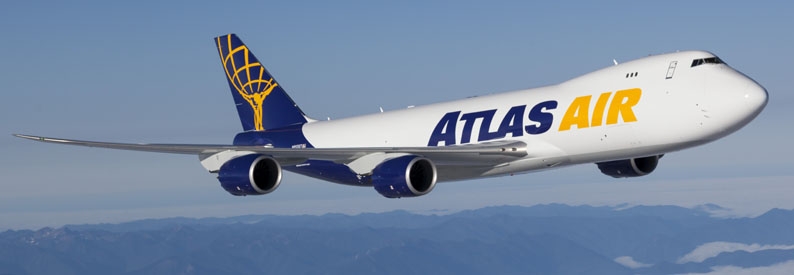US’s Atlas Air executes $200mn share buy-back

Atlas Air (5Y, New York JFK) parent Atlas Air Worldwide Holdings has authorised a new USD200 million share buyback programme, starting off with USD100 million in accelerated repurchases expected to be completed by the end of the second quarter of 2022.
“We take a disciplined and balanced approach to capital allocation. We have strengthened our balance sheet, made significant investments in our fleet, including new B747-8 and B777-200F freighter aircraft, and are returning capital to our shareholders,” Atlas Air Worldwide Chief Executive Officer John Dietrich said in a statement to the market.
On February 17, the company posted record 2021 results, including revenue that rose to USD4 billion and net income that increased to USD493.3 million, compared with USD3.2 billion in revenue and net income of USD360.3 million in 2020.
On an adjusted basis, EBITDA increased to a record USD1.1 billion in 2021 compared with USD844.2 million in 2020. For the twelve months ending December 31, 2021, adjusted net income rose to a record USD551 million, compared with USD379 million in 2020.
Fourth-quarter 2021 net income was USD176.74 million compared with USD184 million for the same period in 2020. Adjusted earnings were USD211.5 million for the period, compared to USD143.2 million in the prior-year period. Revenue for the quarter rose 24.7% to USD1.1 billion versus USD932.5 million the year before.
Looking forward, the company expects strong performance in the first quarter of 2022, with adjusted EBITDA and adjusted net income similar to the first quarter of 2021. It anticipates revenue of about USD1 billion from flying about 85,000 block hours.
It said the outlook reflected higher yields, including the contribution from numerous new or enhanced long-term customer contracts. “We expect first-quarter results to continue to be impacted by ongoing pandemic-related expenses, including premium pay for employees flying into locations significantly impacted by COVID-19 and other operational costs, including for regulatory compliance and providing a safe working environment for our employees.
“For the full year in 2022, we expect aircraft maintenance expense to be similar to 2021, and depreciation and amortisation to total about USD300 million. In addition, core capital expenditures, which exclude aircraft and engine purchases, are projected to total approximately USD135 to USD145 million, mainly for parts and components for our fleet,” it said.
Atlas Air Worldwide Holdings also announced it had entered into a long-term, dedicated charter agreement to operate two of its new incoming B747-8(F) freighters for freight forwarding giant Kuehne+Nagel.
It will commence the charters on delivery, the first expected in the third quarter and the second in the fourth quarter of 2022.
The two aircraft placed with Kuehne+Nagel are the last B747s Boeing will produce, the company said in a statement. Atlas ordered the last four B747 production aircraft to capitalise on strong demand.
According to the ch-aviation fleets advanced module, Atlas Air’s fleet comprises 93 aircraft, including eight B737-800(BCF)s, seven B747-400s, two B747-400(BCF)s, two B747-400(BDSF)s, two B747-400(ERF)s, twenty-six B747-400(FSCD)s, four B747-400(LCF)s, four B747-8Fs, one B767-200, six B767-300(ER)s, eight B767-300(ERBCF)s, fourteen B767-300(ERBDSF)s, and nine B777-200Fs.
Four more B777-200Fs are on order, with the first expected to be delivered late in the fourth quarter 2022 and three more throughout 2023, the company said.
It purchased six of its existing B747-400Fs during 2021 that had formerly been on lease. It will also purchase another five of its other B747-400Fs at the end of their leases during the course of 2022, which range from February to December.
“Acquiring these wide-body freighters underscores our confidence in the demand for dedicated international airfreight capacity, particularly in express, e-commerce, and fast-growing global markets. These investments are consistent with our long-term strategic growth plan and will provide customers with modern and environmentally-efficient aircraft, which will drive strong returns for Atlas in the years ahead,” the company concluded.
